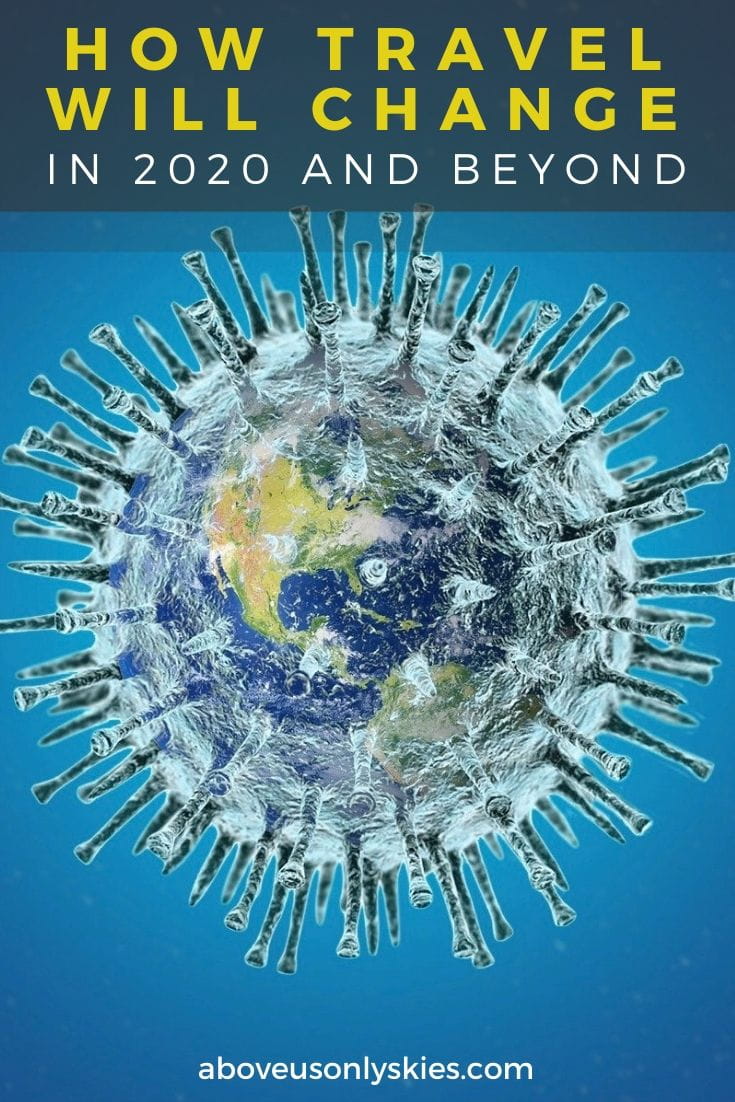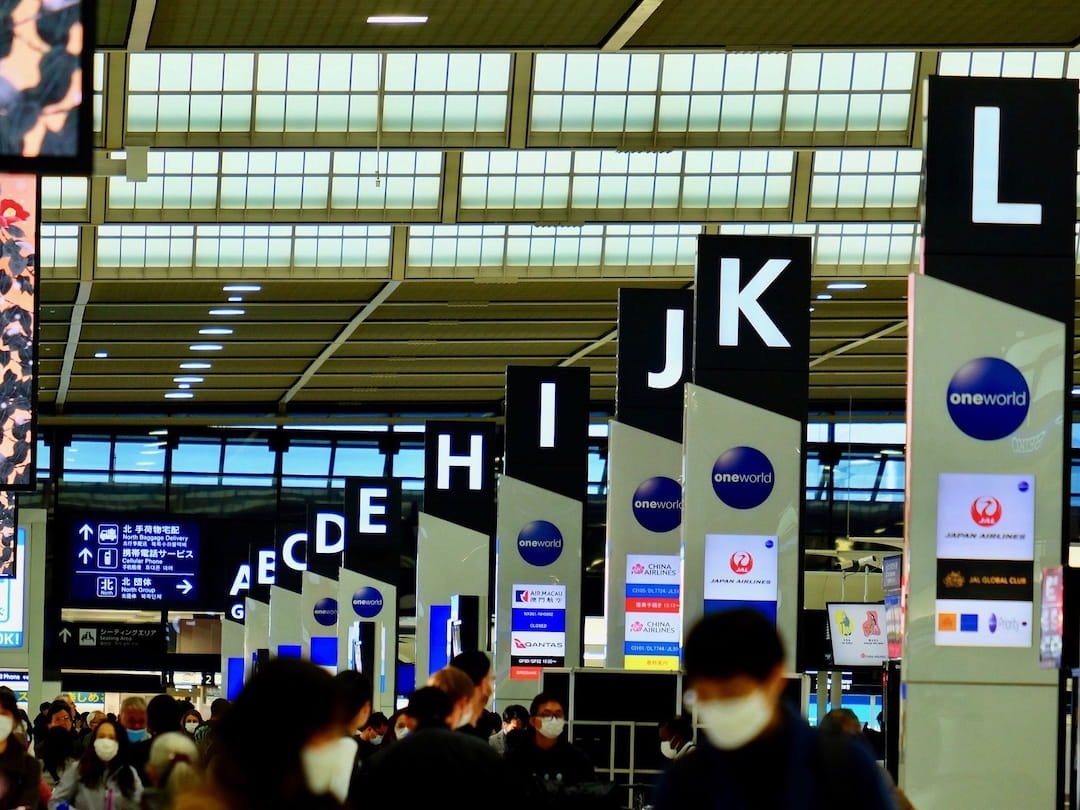HOW TRAVEL WILL CHANGE IN 2020 AND BEYOND
HOW TRAVEL WILL CHANGE IN 2020 AND BEYOND
14 May 2020
Let’s face it, travel as we know it is finished. At least for the foreseeable future.
The days of carefree movement across oceans, continents and international borders have already been consigned to a distant memory. And the welcoming arms of 95% of the world’s nations have been reluctantly folded as far as international travellers are concerned. All of which will have severe consequences on tourism for the remainder of 2020.
For example, in Europe, many countries that traditionally rely on tourism such as Spain, Italy and France, have pretty much written off the year already. Some others, such as Portugal and Greece, are clinging on to the hope that lockdown-weary tourists can be tempted back out for some late-summer sun. But the reality is that most countries will only be able to rely on domestic tourism until the “new normal” begins to take shape.
Meanwhile, the travel and tourism “industry”, which directly and indirectly generated an incredible 9 trillion US dollars in 2019 (contributing 10.4% of the world’s GDP) is slowly coming to terms with the probabilities of what this “new normal” will actually look like.
Some of those probabilities are already beginning to take shape.
And not all of them are necessarily bad for the traveller.
Travel bubbles
One of the earliest initiatives will be the development of travel corridors or hubs (or “bubbles”), agreed between countries with a shared success of overcoming the virus outbreak, and where the risk of COVID-19 infection is very low. The theory being that barriers to travel such as mandatory quarantines, blood tests and the like could be removed for residents of those countries who restrict their travel to within each bubble.
For example, New Zealand and Australia have already announced their intention to establish a bubble. And Fiji is keen to join in on the act, too. But nothing can move forward until safe flying protocols have been agreed.
However, where countries share land borders, such as Vietnam, Cambodia and Thailand, and the Baltic states of Estonia, Lithuania and Latvia, no such protocols should stand in the way.
Of course, they’re not likely to be a long-term solution but it does give those countries involved a head start in at least re-establishing some form of international tourism.
An overhaul of air travel
According to the global aviation marketing consultancy, Simpliflying, air travel will change beyond recognition over the next few years. Indeed, in their recent report, The Rise Of Sanitised Travel, they identify 70 areas of the passenger journey which they suggest will either change or be the subject of new processes, in an attempt to restore consumer confidence in flying.
For instance, no more last-minute arriving at the airport and whizzing straight through security because you’ve done your check-in and seat allocation online. In future, you’ll be arriving at least four hours before your flight, but won’t be allowed into the departure lounge until you’re deemed “fit to fly”. So, along with possessing your “immunity passport” you’ll have to pass through a disinfectant tunnel and thermal scanners. After which you’ll head to the screened check-in desk for a health assessment (possibly involving a CT scan) and a blood test, too.
Meanwhile, your bags will undergo their own health check via a fogging or UV disinfection process.
In the boarding area, you’ll wait for an individual notification on your mobile phone to let you know it’s your time to board. That’s unless your check-in scan result comes back positive, in which case you’ll be turned back.
Everything about the experience will be “touchless”. From facial recognition to touchless vending machines in the boarding area to digital magazines and menus on board.
And throughout, an almost obsessive dedication to sanitisation and social distancing will prevail.
It may seem far-fetched looking through the lens of the past. But remember that the airline industry’s number one priority (along with overall safety) is to restore and maintain consumer confidence in flying. And, without the luxury of being able to entice massive numbers of tourists with rock-bottom prices, the focus will undoubtedly be on health and safety.
Indeed, some of these measures have already started to happen. For instance, Air Canada will be requiring pre-flight temperature checks from May 15. And Emirates are now requiring COVID-19 blood tests for all passengers. Meanwhile, in a raft of measures to get their fleet operating again from July, Ryanair has announced that passengers wishing to use the onboard toilet will have access granted “on request”. That means no leaving it until the last minute, folks.
Of course, if and when a vaccine suitable for mass distribution is available, questions will be raised as to whether these restrictive measures are still needed. And, as confidence in flying and demand increases, there may well be a temptation to revert to a pack-them-in-tight mentality. But the airline industry will be wary of being caught with their pants down once again in the event of a new pandemic. So you can bet any investments in sanitised travel will be for the long-term and not just for the next few months.
The cost and availability of travel insurance
In the absence of a vaccine suitable for mass distribution, travel insurance will be a headache, both for providers and consumers.
In the UK, the Association of British Insurers has estimated a £275 million payout for cancelled holidays and business trips due to COVID-19. And, in a double-whammy, major insurers such as Admiral, First Line and Aviva have suspended sales of new policies altogether. With an unclear picture for travel over the next few years, it leaves the insurance industry (and consumers) with some tough decisions to make.
It’s certainly true that more people are now aware of the existence of travel insurance. There’s nothing like a potential loss of money to trigger someone’s search for a potential bailout.
But it also seems certain that there will be a reduced choice of insurers in the future as many companies decide that the small margins of return are not worth the extra risk. Unless, of course, governments decide to provide help with guarantees of their own.
The ones that do continue to offer insurance will have to consider whether to include coverage for any future outbreaks. Much in the same way that coverage for terrorist attacks was included as a standard benefit after 9/11.
And so reduced choice, higher risk and increased benefits can only mean one thing. A significant increase in price. Especially for those people, such as the over-60s and those with underlying health conditions, who are more vulnerable to the disease.
What about other forms of travel?
We’re already fans of overland travel, whether that’s by bus, train or car. But, whilst bus and train travel will come with their own social distancing and sanitisation restrictions, the ubiquitous road trip by private vehicle could be set for something of a renaissance.
For example, most of Europe’s borders have been closed for weeks. But chinks of light are now beginning to emerge in countries such as Austria and Germany, whose shared border will be open once again by mid-June.
Even the UK, who have announced a 14-day quarantine for international visitors, have come to an agreement with Ireland and, possibly France to allow the reciprocal flow of travel. Which indicates to us that the long-established British love affair with holidaying in France by car and/or caravan is back on the agenda. And, once border restrictions are loosened elsewhere in Europe, don’t be surprised to see independent leisure travel by road at the forefront.
Conversely, cruise lines are already seeing a significant increase in bookings for 2021. Partly due to re-scheduling from cancelled trips in 2020. But, given the notoriety of a number of virus outbreaks on cruise ships during the current pandemic, and the high proportion of cruise passengers who would fall into the “vulnerable” category, that might come as a surprise to many.
Reasons for optimism
Amidst all the pessimism and potential upheaval surrounding travel, there are nevertheless reasons to be optimistic about what lies ahead.
There are arguably plenty of places in the world that could do with a reset on the numbers of people who visit. European cities such as Venice, Barcelona and Dubrovnik were already struggling with the sheer scale of tourism. And we’d like to think that the current freeze on visitors would give those cities’ decision-makers an opportunity to determine a better way to welcome visitors in future.
Similarly, hugely popular tourist sites such as Machu Picchu in Peru and Siem Reap in Cambodia may benefit from a cooling off in foot traffic.
It might be a step too far, but we’d also like to think that tourists, in general, will change their perception of what travel is all about. That it’s not something to just take for granted. That freedom of travel comes with responsibilities towards the local population, fellow travellers and the environment.
Indeed, recent images of wildlife roaming free in deserted city centres tell us something about the impact that tourism has on the world around us.
It might take a while, but travel will surely make a comeback.
Just not quite in the way we’re used to.
Related articles
Hi, we’re Ian and Nicky, an English couple on a voyage of discovery around the world, and this blog is designed to reflect what we see, think and do. Actually, we’d like to think it also provides information, entertainment and inspiration for other “mature” travellers, too. So please feel free to pour yourself a glass of something suitably chilled and take a look around.




Great article, guys! I think we will keep our camper van just a bit longer… 🙂 We are all for overland travel as well (and agree that the cruising lifestyle is a perfect alternative, once Islands allow boaters to enter again!), but the tricky part is that my entire family and childhood friends live across the Atlantic Ocean from me… I’ll have to tag a third year to my not being able to return for a visit. 🙁
Thanks, Liesbet. We’ve toyed with the idea of investing in a camper van ourselves – which we may well do if we decide not to fly for a while. Hope you manage to get across the Atlantic sooner rather than later!
It’s a little like an Orwellian world you describe, and not without justification either.
I agree that for now, it’s life changing in terms of travel, however, I feel that as soon as a vaccine is found, which could be within the year, once we can show certification, that’ll change back again.
Currently, we’re all learning about how to cope as best we can, you survive and keep going. But, as always, the financial standpoint will overtake the panicked and will push through a coping mechanism that will be far more relaxed than of late. The trouble will be to balance finances with safety and as we all know, the former has always been the guiding light.
In my estimation, I would suggest that worldwide travel will be pretty much normalised by the year end, and if not, then we’ll consider that a lot of major airlines will no longer be flying and that air travel for one will be a lot cheaper and available.
But I may be wrong of course…… ????
Yes, I agree that a vaccine could be the game-changer, but the delivery of one is by no means guaranteed. And, I think that some of the new measures will probably remain in place, if for no other reason than they will have been normalised by then. But also to guard against any future virus outbreak. As you say, who knows?!
Great post. We think two areas that will take off are the RV and boat industry. What better way to travel in one’s own home on the road or the water? After the initial purchase, the monthly expenses are a far cry from the cost of air travel combined with hotel stays. If there is a second winter wave with C-19 international travel will be set back for years.Especially if the airlines think folks will be ok with being crammed into the planes like sardines again. There will be a huge percentage of people that will not tolerate that kind of travel anymore and yes the cost to fly is going to go up.
Totally with you on that, guys. Especially the RV option. A second wave is a real possibility which might mean further border closures. But once things settle down, I can see road-tripping becoming much more popular. In fact, it’s a topic that probably warrants a blog post of its own…